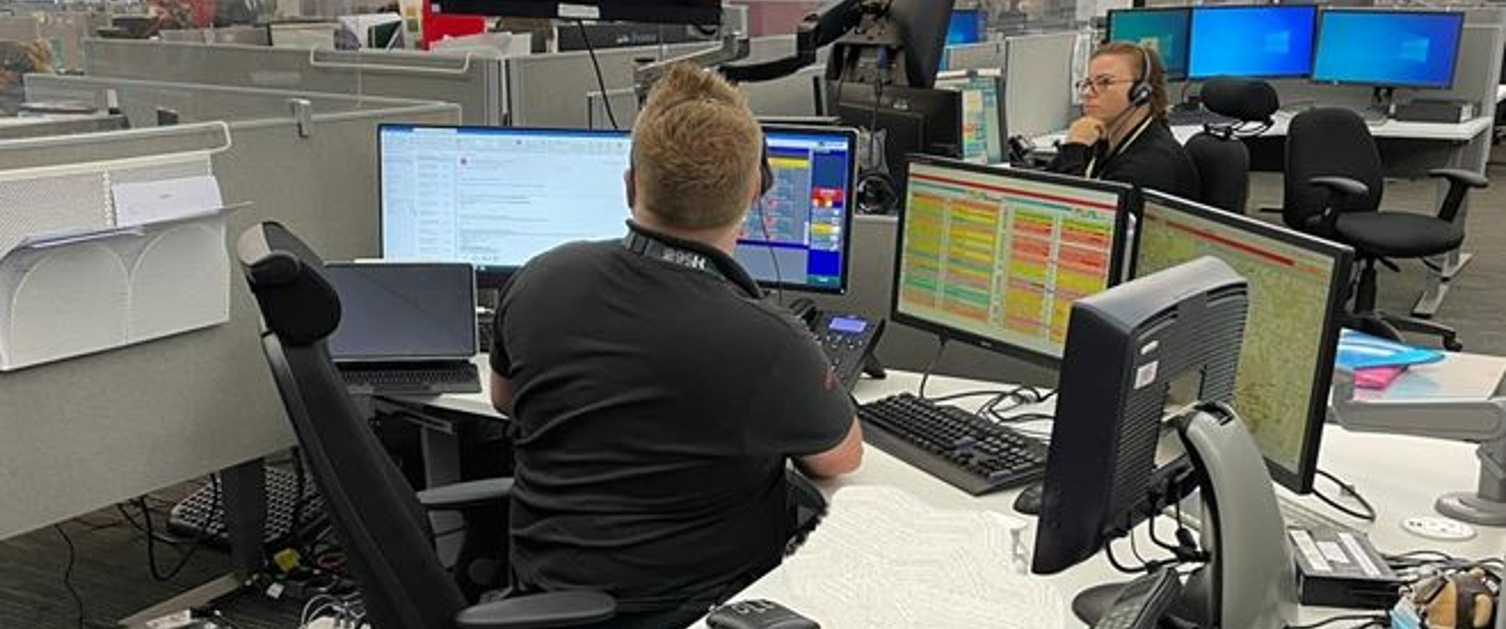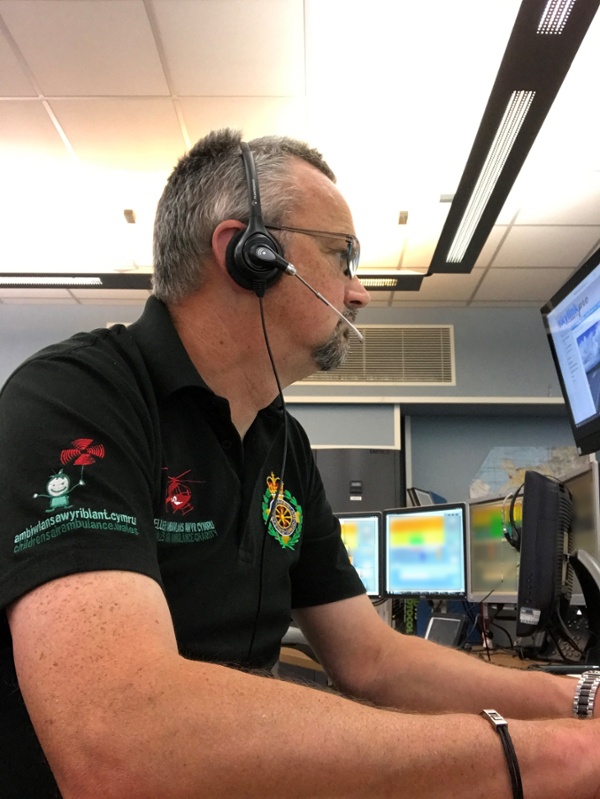The cool heads of the unsung heroes on the Critical Care Hub

Control Rooms play a vital role in dealing with traumatic and distressing situations.
Every day, the unsung heroes who work there are often the first point of contact for members of the public experiencing emergency circumstances.
Their expert knowledge is crucial when dealing with people often needing life-saving assistance.
For the second year, an international campaign shines a light on critical control room staff, to celebrate and raise awareness of the vital role played by control room teams dealing with traumatic incidents on a daily basis.
Last year involved more than 200 control rooms and over 10,000 personnel from police, ambulance, fire and coastguard services across the UK involved, as well as control rooms from as far afield as the United States, Australia and India.
In Wales, the Emergency Medical Retrieval and Transfer Service (EMRTS) Critical Care Hub (ECCH) is responsible for the deployment and co-ordination of the Critical Care assets provided by the partnership of the Wales Air Ambulance Charity and EMRTS and the Adult Critical Care Transfer Service (ACCTS).
EMRTS Critical Care Hub Manager Greg Browning said: “In the nine and a half years since the ECCH (formerly the Air Support Desk) was set-up there have been many changes, not just in name.
“The ECCH operates 24 hours a day, and supports not only the EMRTS / WAAC operation but also the ACCTS teams, dealing with large numbers of telephone and radio calls, all the while viewing 1800 or more 999 calls a day to assess for potential pre-hospital taskings.”

A variety of clues will point the team on the hub (an EMRTS Clinician and Allocator) to those where early Critical Care intervention will potentially improve the outcome – for instance an unconscious and entrapped victim in a road traffic collision who might require blood transfusion, urgent pre-hospital anaesthesia and conveyance to a neurosurgical centre.
Less obvious but with the potential nevertheless to prevent life-changing and debilitating long-term affects might be someone who has taken a simple fall climbing over a fence.
The victim could be conscious and breathing, with injury to their lower leg. Despite being less dramatic in appearance, closer interrogation by Control Room staff could reveal complications such as an open fracture where the patient’s leg is badly deformed, and their foot is pulseless.
Identifying the seriousness of the situation with their expert knowledge, they are able to dispatch of a Critical Care Team able to administer antibiotics to offset the risk from the open fracture, and give advanced analgesia and procedural sedation to allow the limb to be straightened and circulation restored. All of this undertaken at the scene before the patient is even conveyed to hospital, greatly enhancing the prospects for a full recovery.
But identifying the call is only the start. The dispatch process involves alerting the appropriate team with relevant information. With an air response it is simply the grid reference, by road it is a postcode. For an air response, although the pilot and team will decide on a landing site once overhead, there are often precautions to take. This includes alerting the police and others at scene that a helicopter is responding, giving safety advice to civilians on the ground (particularly if the helicopter will be first on scene), and advising other agencies of dispatch to avoid “confliction” (with other aircraft such as Search and Rescue who might be in the area).
At times, it might be necessary to arrange for the team to be met at a landing site and conveyed to the scene, or we might need to arrange an emergency road closure to allow a carriageway landing.
During the mission the ECCH record timings, called over the air by the teams, arrange logistical support both at scene and at the receiving hospital as appropriate, and conference call medical teams on scene with receiving hospitals and sometimes the Top Cover Consultant to advise of, or decide upon, appropriate treatment and disposition. The service may have all its aircraft at separate concurrent incidents, or occasionally the same one.
Then it’s on to the next call. It takes a cool head to work on the ECCH.
Greg added: “It is important to remember the ECCH team is only ever two people. They are always there in the background of all the high profile taskings, and very much the unsung heroes the service’s operation – and absolutely vital to it.”